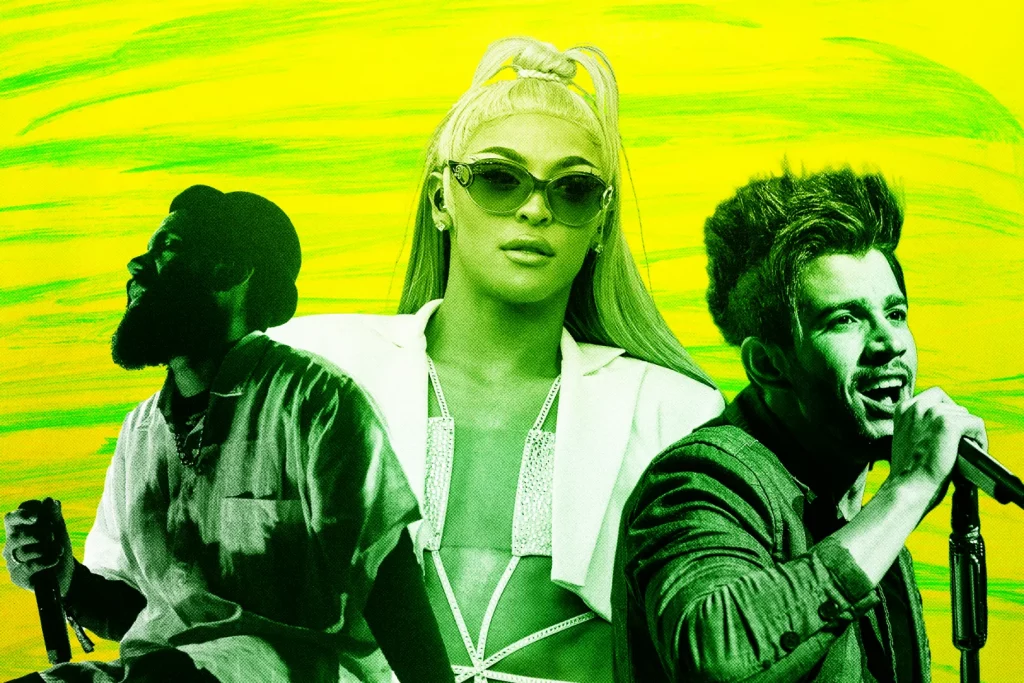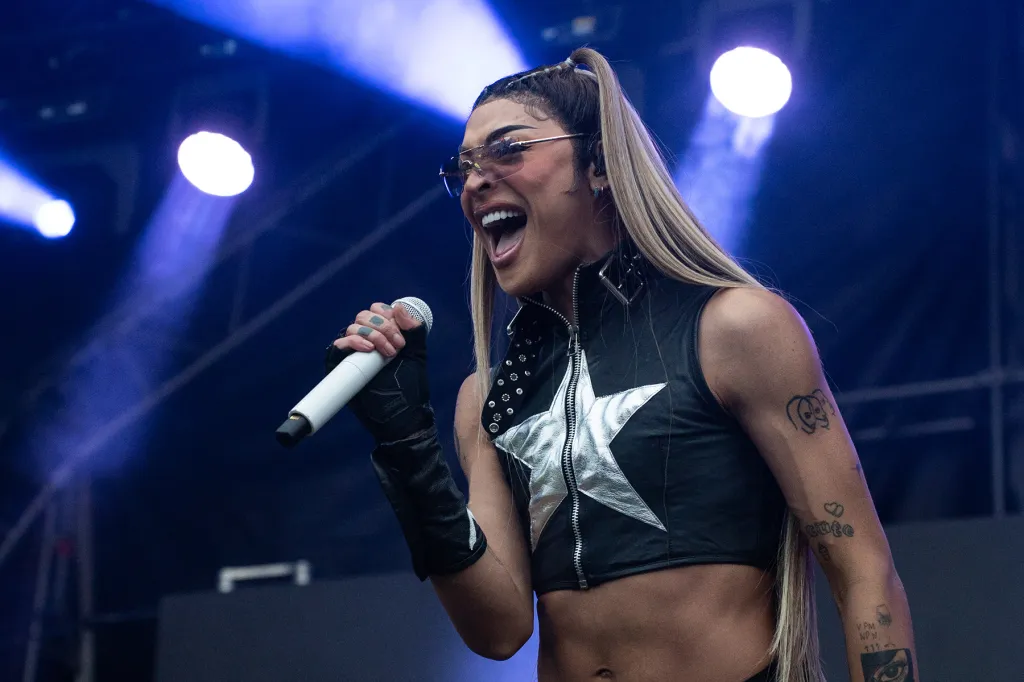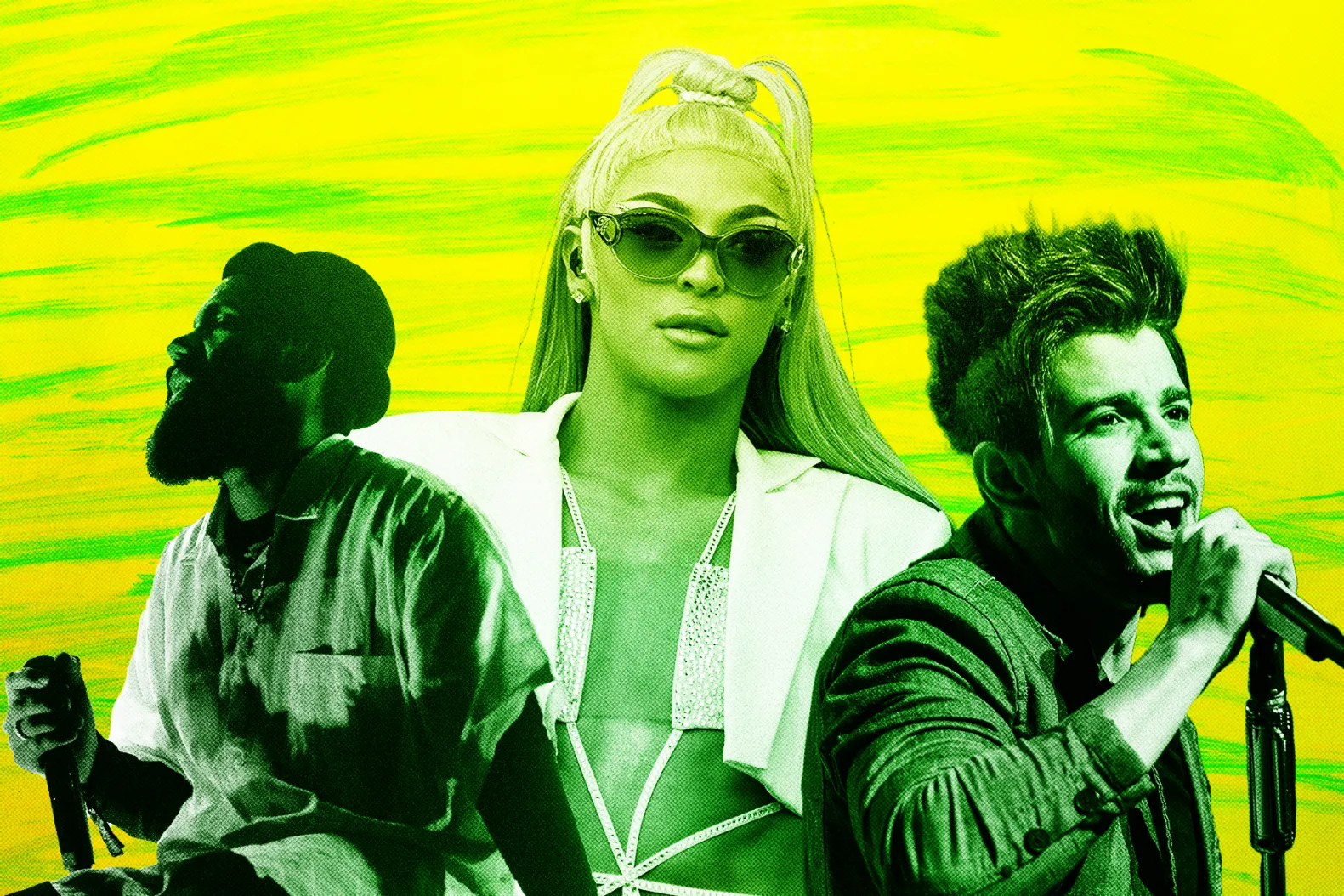This is a story assignment for Rolling Stone. It was first published in March 2023.

A FEW MONTHS ago, on Jan. 1, more than 150 thousand people swarmed the savannah-based, landlocked city of Brasília — an unusual flock since beach cities like Rio are usually top destinations around the holidays. Yet Brazil’s capital was busy as ever, starting with its buzzy main avenue: By the Esplanada area, a massive crowd watched a series of concerts featuring dozens of artists from all over the country. Hip-hop heads with soccer jerseys stood next to old-school Tropicalia fans, couples holding babies shouted along to baile funk hits with groups of kids, indigenous and Black leaders danced to Gal Costa and Elza Soares jams blaring from speakers.
This was not a regular New Year’s Eve after party: It was the Festival do Futuro, a massive music event that followed the inauguration of Brazilian president Luiz Inácio Lula da Silva, who beat the right-leaning leader Jair Bolsonaro during the country’s 2022 elections.
One of the bands playing that day was BaianaSystem, a group that’s become a political beacon in Brazilian music over the last decade with. “It seemed that all of our lyrics were made for that moment, for the inauguration day concert,” says Russo Passapusso, BaianaSystem’s lead singer.
Since the band’s founding in the early 2010s, Passapusso and his bandmates have been open about calling out the country’s persistent problems, from social inequality to racism. Bolsonaro’s presidency was a particular target of their poison guitars and heavy drums, and the administration was like a bull’s eye they’d hit with songs such as the defiant “Lucro,” which blasts oligarchies in Brazilian megacities.
BaianaSystem’s outspokenness reflects a long tradition of music and politics intersecting in Brazil. Known for its power and diversity, Brazilian music has always been a primary source for artists or movements to express political ideas. Old-century carnaval anthems, or “marchinhas,” were largely used as satirical commentary about presidents and governors in the first decades of the 20th century. Caetano Veloso and Gilberto Gil, the mainstays of the Tropicália movement, risked censorship and even jail under Brazil’s military dictatorship before they were exiled to London in the 1960s. In the early Nineties, rap groups such as Racionais MCs began releasing music to encompass the complexities of Black youth living in São Paulo favelas.
Although Brazilian pop music thrives outside of politics, it remains a specific lens to understand power dynamics and complex social issues today. It’s not a coincidence that BaianaSystem, for example, started to gain momentum when Brazil entered a 10-year crisis streak. During Lula’s previous term as president, a leftist coalition he’d led lost power in 2008, allowing central and central-right parties to gain majorities in both Brazil’s national Congress and Senate. Meanwhile, corruption cases and global and local economic downturns undermined the leadership of Lula’s successor, Dilma Roussef. Big events, like the 2014 World Cup and Rio’s 2016 Olympics, only deepened the social fracture, resulting in political rallies that spilled into the streets all over the country. In late 2016, Roussef was impeached. A headless left and a stronger central coalition became the perfect storm for the rise of the extreme right, which ultimately led to Bolsonaro’s election in 2018.
BaianaSystem’s music was in constant dialogue with the country’s zeitgeist. A year after Bolsonaro took office, the band released their sophomore album, O Futuro Não Demora (“The Future Won’t Take Long”). They weren’t strangers to sharing direct, uncompromising messages with their listeners — their first album was full of sharp, stabbing lyrics blended with Afro-Latin tones, a punk rock attitude, and traces of Bahia’s pagodão, a modern percussion-soaked strand of samba. Their second release was even more blunt: In the feverish modern mambo jam “Sulamericano,” French-Colombian artist Manu Chao joins in as Passapusso sings, “Counter-attack, I’m making plans to counter-attack.”
During Festival do Futuro, BaianaSystem hit the stage with even more strength, performing songs like “Sulamericano.” Throughout the day, thousands of people jumped and sung their lungs out to every performance — a sign of how much the music resonated with them and how much work there still is to do. “Our lyrics were still valid at that concert,” says Passapusso. “We realized there that after 10 years as a band, we are still at the beginning. Our lyrics talk about topics that the country still hasn’t managed to understand, such as Afro-Latinidad, and our bonds with neighboring countries are very important.”
The energy in Brasília was quite different one week later. On Jan 8., the same area that fans and musicians had filled just days before was taken over by a mob that attacked the Brazil’s national Congress and Supreme Court. “We realized then that Lula’s election was not a turning point. The struggle continues,” says Passapusso. “The coups, the fake news, we are going to be bombed [with these things], more and more. Our lyrics have to be stronger — the metaphors, the poetry needs to be stronger because the moment continues to be very delicate.”
Political expression even extends into even the glossiest parts of the Brazilian pop scene. Though megastar Anitta made it clear she didn’t want her image associated with any sort of political campaigns in 2022, she’s endorsed Lula in the past and called out Bolsonaro repeatedly. Another prominent supporter of Lula was the beloved artist Pabllo Vittar. She never hid her political preferences, even when the politician faced jailtime after being convicted of corruption. (He was set free in March 2021, when Brazil’s Supreme Court decided the trial lacked necessary jurisdiction.)
“I have ties with a Brazil that respects its people, that seeks improvements to have an increasingly dignified and fair society for all people, especially for those who are in vulnerable situations, regardless of social class, race, gender,” says Vittar, who also performed at the Festival do Futuro. “President Lula and the Workers Party understand very well the importance of culture for a society and since [his first election] in 2002 has always sought fomentation to help the artists of our country.”
Support and a strong safety net for artists is one thing musicians in Brazil have been fighting for. During his administration, Bolsonaro deployed major budgetary cuts to federal grants and subsidies for creatives. Other than an emergency fund for artists during the pandemic, there was hardly any effort from Bolsonaro’s staff to support the arts as part of the national and social fabric — something that mirrored one of his first actions as president, which was the extinction of the Ministry of Culture.
“We’ve been living years of an institutionalized and verbalized depreciation,” says Souto MC, an indigenous rapper who also performed at the Festival do Futuro. “To perform at the festival was one of the best and greatest experiences of my life, for sure.”

Amongst the 60 artists who played the festival — all for free, according to festival organizers — there was not a single representative from Brazil’s sertanejo genre. Sertanejo has grown from a rural tradition to one of the main sounds of the country, with artists such as Gusttavo Lima ranking as some of the most popular in the nation. Today, sertanejo reflects a modern version of Brazil’s countryside, incorporating contemporary lyrics and electronic sounds, and gets a large chunk of national streaming plays and airwaves presence. According to YouTube data from 2022, seven out of the 10 top-charting tracks in Brazil were performed by sertanejo artists.
However, several sertanejo artists have been vocal about supporting Bolsonaro over the past few years, including Lima himself. Along with other big names in the genre, such as Chitãozinho and Zezé di Camargo, Lima had an official meeting with Bolsonaro last October, shortly before the elections. “We’ll not quit certainty for hope,” he said at the time. Moreover, many of these artists court a fanbase in the Brazilian countryside, home to Bolsonaro’s most prominent voting silos. (The politician won votes across the central west region, Brazil’s corporate farming hotbed.) None of the top-tier sertanejo artists spoke out against the mob attacks in the days that followed the anti-democratic riot, another indication of how music represents a divided Brazil today.
Elsewhere, some musicians are positioned to speak out. Under Lula, the government rebuilt the federal office for culture and also nominated the singer Margareth Menezes to be the head of the bureau. A household name in contemporary Black music in Brazil, Menezes is known for her stunning take on Bahia’s axé hits. “Divindade do Egito,” for instance, has been a chart-topping carnival anthem since the late-Eighties; it’s virtually impossible to find a Brazilian who has never sung along to the chorus of “Eu falei faraó.” With Menezes at the helm of the Ministry of Culture, the song has made a comeback, playing on stages, at bars, and across clubs all over the country. It’s not hard to spot peaks in searches related to the track on Google Trends in the past three months.
It was “Divindade do Egito” that Menezes chose to perform alongside BaianaSystem at the Festival do Futuro. A few days later, the singer chanted the song’s chorus for a packed room in Brasília. She was leading an impromptu performance for audiences who celebrated her first day at the Ministry of Culture. In addition to singing, the newly installed minister gave a sharp inaugural speech as she shed light on the future she has in mind: “You fight culture when you want a silent, obedient country,” she said. “But we won. The Ministry of Culture is back, the Brazil we want is back.”
